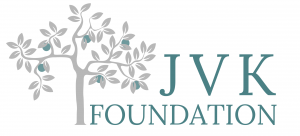
JVK Foundation Grant Award
TDP Receives $95,000 Grant from the Juliet Viola Kniffen Foundation! [Clearwater, FL, May 21, 2024] – The Dysautonomia Project (TDP) is proud to announce its

TDP Receives $95,000 Grant from the Juliet Viola Kniffen Foundation! [Clearwater, FL, May 21, 2024] – The Dysautonomia Project (TDP) is proud to announce its
In this video Dr. Singer introduces the autonomic reflex screening process giving an overview of key elements when screening patients.

POTS is the most common autonomic nervous system disorder and an under-recognized health condition that affects teens and adults.

Dysautonomia (dis-auto-NO-mia) is a term used to describe any disorder of the autonomic nervous system (ANS). This article covers a broad range of topics including symptoms, types of dysautonomias, who is affected, and treatments

Whether you’re relieved to finally have a diagnosis or you’re struggling to accept an autonomic disorder diagnosis, the most important thing you can do is continue moving forward in treating and managing your symptoms.

Not enough is known about MCAS. However, it may be one of the more important medical findings of our time. In a follow up interview, Dr. Matthew Hamilton shares that there are many theories about the basic mechanisms of MCA that may contribute to GI symptoms. This is especially important for dysautonomia patients who have also been diagnosed with MCAS.

Several non-pharmacological treatments are used to help patients with dysautonomia. Although these treatments do not involve medicine, patients should discuss the use of such therapies with their providers as part of the treatment plan.
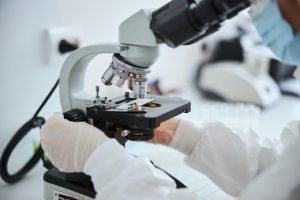
A large number of mast cell activation disorder patients carry a concurrent diagnosis of Dysautonomia, a collection of conditions associated with dysfunction of the Autonomic Nervous System (ANS).

Chronic illness is hard to live with. By definition, a chronic illness is an ongoing, long-term disease or illness that does not typically have a cure. When your life has been upended by illness, it’s not uncommon to experience bouts of sadness and even depression. The Cleveland Clinic* reports that an estimated one-third of the people suffering from chronic illness will experience depression.

Patients with multi-system disorders of regulation, such as dysautonomias, must advocate for themselves and take responsibility for managing their own health. The concept of “flip the clinic” addresses this need. It is where patients and health care practitioners improve medical care together.
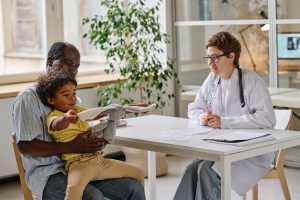
This article focuses on pediatric patients and symptoms of chronic orthostatic intolerance and not those of rare congenital pediatric dysautonomias. It identifies steps parents can take to help their children as they seek a diagnosis and treatment.
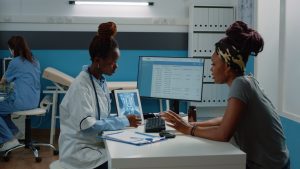
Autonomic dysfunction can occur at any age: pediatric, adult, or geriatric. Teen and adult onsets of dysautonomias are considered to be disorders of orthostatic intolerance.
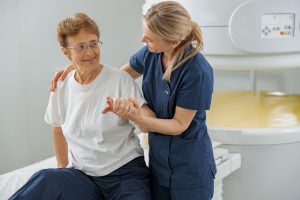
The orthostatic vitals test is used to evaluate the body’s response to a change in position. It examines changes in your heart rate and blood pressure when you are resting, sitting, and standing.

This is a time like no other. Since 2014, The Dysautonomia Project (TDP) has worked to create hope for those with autonomic nervous system disorders through education of patients, providers, and communities.

Being your own advocate is essential for any patient (or family member) living with dysautonomia.

Orthostatic intolerance refers to a person’s inability to remain upright without symptoms. It is a common sign of dysautonomia with multiple symptoms.

POTS is the most common disorder of the autonomic nervous system (ANS) affecting an estimated 1 in 100 teenagers.

Chronic illness, especially dysautonomia, can leave you feeling like your life is out of your control. But there are things you can control. Preparing for your medical appointments is one of them.

There are several nonpharmacological treatments available to help manage symptoms of dysautonomia. One common treatment is an increase in salt intake.

Living with dysautonomia for any length of time means knowing the ups and downs of finding treatments that work as you work with your provider to manage your care.
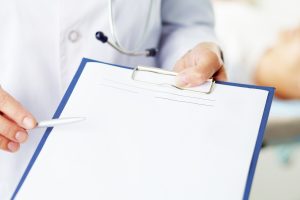
Dysautonomia patients must be more informed and engaged in managing their health care with their providers. Tracking your symptoms is an important part of this process.

Dysautonomia may be one of the most often overlooked and misdiagnosed conditions of all time, making the goal of getting a correct diagnosis the first battle for the patient and family.
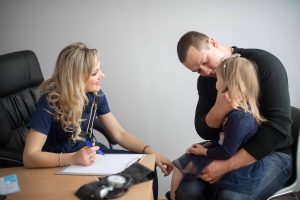
Pediatric onset of autonomic nervous system disorders is very rare. These are also known as genetic or congenital autonomic nervous system disorders.
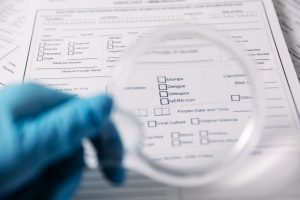
As you take charge of your health and partner with your provider to find a treatment plan that works, you’ll want to keep relevant medical records and data together.
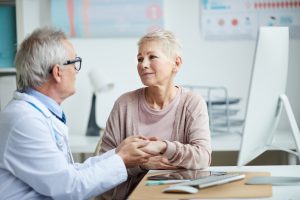
In patients 50 years or older, autonomic disorders typically reflect a neurodegenerative disease which means the nerves are gradually losing their ability to work.
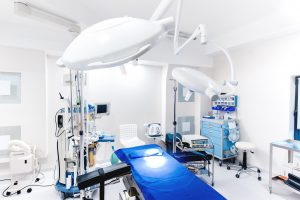
The tilt table test was once considered to be the “gold standard” of diagnosing dysautonomias. This article explains more about the test and what to expect.
In this video Dr. Goldstein compares the classic diagram of the autonomic nervous system with an updated analogy which is easy to understand. He also shows a plasticized human section of autonomic nerves.
Ideas for the Future https://vimeo.com/manage/videos/810619644/5276199d57 Recent Articles 31 Jul 2023 Provider Video Library Overview of the Autonomic Reflex Screening 02 Jun 2023 Dysautonomias POTS: Postural
Management of nOH https://vimeo.com/manage/videos/810622147/60c41532ff Recent Articles 31 Jul 2023 Provider Video Library Overview of the Autonomic Reflex Screening 02 Jun 2023 Dysautonomias POTS: Postural Orthostatic
Management of POTS: Syncope https://vimeo.com/manage/videos/810596496/de763394df Recent Articles 31 Jul 2023 Provider Video Library Overview of the Autonomic Reflex Screening 02 Jun 2023 Dysautonomias POTS: Postural
Geriatric Dysautonomias https://vimeo.com/manage/videos/810597956/8f261fac92 Recent Articles 31 Jul 2023 Provider Video Library Overview of the Autonomic Reflex Screening 02 Jun 2023 Dysautonomias POTS: Postural Orthostatic Tachycardia
Adult Dysautonomias Part 3: Other Dysautonomias https://vimeo.com/manage/videos/810598893/6b76c0b0d2 Recent Articles 31 Jul 2023 Provider Video Library Overview of the Autonomic Reflex Screening 02 Jun 2023 Dysautonomias
Adult Dysautonomias Part 2: POTS and Related Conditions https://vimeo.com/manage/videos/810240639/8eb848fbcd Recent Articles 31 Jul 2023 Provider Video Library Overview of the Autonomic Reflex Screening 02 Jun
Adult Dysautonomias Part 1: Syncope https://vimeo.com/manage/videos/810618239/2220f16747 Recent Articles 31 Jul 2023 Provider Video Library Overview of the Autonomic Reflex Screening 02 Jun 2023 Dysautonomias POTS:
ANS Tests Part 3: Tilt Table – HRV – QSART and Others https://vimeo.com/manage/videos/810591815/771822d409 Recent Articles 31 Jul 2023 Provider Video Library Overview of the Autonomic
ANS Tests Part 2: The Valsalva Maneuver https://vimeo.com/manage/videos/810223069/c9819ccdc9 Recent Articles 31 Jul 2023 Provider Video Library Overview of the Autonomic Reflex Screening 02 Jun 2023
ANS Tests Part 1: The Most Important Autonomic Function Test https://vimeo.com/manage/videos/810180262/acf05e2ffe Recent Articles 31 Jul 2023 Provider Video Library Overview of the Autonomic Reflex Screening
The Syndromic Nature of Dysautonomias https://vimeo.com/manage/videos/810222318/becdfefd13 Recent Articles 31 Jul 2023 Provider Video Library Overview of the Autonomic Reflex Screening 02 Jun 2023 Dysautonomias POTS:
Stress and the Autonomic Nervous System https://vimeo.com/manage/videos/810179174/3e8fc7d3de Recent Articles 31 Jul 2023 Provider Video Library Overview of the Autonomic Reflex Screening 02 Jun 2023 Dysautonomias
Homeostasis and the Autonomic Nervous System https://vimeo.com/manage/videos/810235407/6a638c03fd Recent Articles 31 Jul 2023 Provider Video Library Overview of the Autonomic Reflex Screening 02 Jun 2023 Dysautonomias
Introduction to Catecholamines https://vimeo.com/manage/videos/810620028/707a855534 Recent Articles 31 Jul 2023 Provider Video Library Overview of the Autonomic Reflex Screening 02 Jun 2023 Dysautonomias POTS: Postural Orthostatic
Chemical Messengers of the Autonomic Nervous System https://vimeo.com/manage/videos/810230791/a3463a0019 Recent Articles 21 May 2024 Recent News JVK Foundation Grant Award 31 Jul 2023 Provider Video Library
Biblical Lie Detection https://vimeo.com/manage/videos/810208934/25472e3021/ Recent Articles 31 Jul 2023 Provider Video Library Overview of the Autonomic Reflex Screening 02 Jun 2023 Dysautonomias POTS: Postural Orthostatic
Important Components of the Autonomic Nervous System https://vimeo.com/manage/videos/810230470/4b5522d8bc Recent Articles 31 Jul 2023 Provider Video Library Overview of the Autonomic Reflex Screening 02 Jun 2023
Organization of the Autonomic Nervous System https://vimeo.com/manage/videos/810234620/a8c011768e Recent Articles 31 Jul 2023 Provider Video Library Overview of the Autonomic Reflex Screening 02 Jun 2023 Dysautonomias
The Autonomic Nervous System Has Parts https://vimeo.com/manage/videos/810209246/99602ef4e1 Recent Articles 31 Jul 2023 Provider Video Library Overview of the Autonomic Reflex Screening 02 Jun 2023 Dysautonomias
Live Demonstration Autonomic Function Tests Part 6: Q&A Patient with Dr. David Goldstein https://vimeo.com/manage/videos/810588567/d5bdf65753 Recent Articles 31 Jul 2023 Provider Video Library Overview of the
Live Demonstration of AFT Part 5: Abnormal Valsalva with Patient and Dr. David Goldstein https://vimeo.com/manage/videos/810634112/bfce5565c9 Recent Articles 31 Jul 2023 Provider Video Library Overview of
Live Demonstration Autonomic Function Tests Part 4: Stand Test with Patient Jade https://vimeo.com/manage/videos/810620458/ecf32a374b Recent Articles 31 Jul 2023 Provider Video Library Overview of the Autonomic
Live Demonstration Autonomic Function Tests Part 3: Valsalva Maneuver with Patient Jade https://vimeo.com/manage/videos/810623957/19ea9ae639 Recent Articles 31 Jul 2023 Provider Video Library Overview of the Autonomic
Live Demonstration Autonomic Function Tests Part 2: Deep Breathing with Patient Jade https://vimeo.com/manage/videos/810597391/4c21304b63 Recent Articles 31 Jul 2023 Provider Video Library Overview of the Autonomic
Live Demonstration Autonomic Function Tests Part 1: Q-Sweat with Patient Jade https://vimeo.com/manage/videos/810244817/60a1237ada Recent Articles 31 Jul 2023 Provider Video Library Overview of the Autonomic Reflex
Patient Instructions https://vimeo.com/manage/videos/810619269/e713a6065c/ Recent Articles 31 Jul 2023 Provider Video Library Overview of the Autonomic Reflex Screening 02 Jun 2023 Dysautonomias POTS: Postural Orthostatic Tachycardia
Autonomic Lab Requirements https://vimeo.com/manage/videos/810231589/b69aefce74 Recent Articles 31 Jul 2023 Provider Video Library Overview of the Autonomic Reflex Screening 02 Jun 2023 Dysautonomias POTS: Postural Orthostatic
Other Helpful Tests https://vimeo.com/manage/videos/810616872/4e454ca749/ Recent Articles 31 Jul 2023 Provider Video Library Overview of the Autonomic Reflex Screening 02 Jun 2023 Dysautonomias POTS: Postural Orthostatic
Thermoregulatory Sweat Test https://vimeo.com/manage/videos/810240891/62d919543a/ Recent Articles 31 Jul 2023 Provider Video Library Overview of the Autonomic Reflex Screening 02 Jun 2023 Dysautonomias POTS: Postural Orthostatic
Tilt Table Testing https://vimeo.com/manage/videos/810626843/8c8c517479 Recent Articles 31 Jul 2023 Provider Video Library Overview of the Autonomic Reflex Screening 02 Jun 2023 Dysautonomias POTS: Postural Orthostatic
Cardiovascular Adrenergic Function https://vimeo.com/manage/videos/810627434/3d1355e6ca Recent Articles 27 Nov 2023 Dysautonomias Valsalva 31 Jul 2023 Provider Video Library Overview of the Autonomic Reflex Screening 02 Jun
Valsalva https://vimeo.com/manage/videos/810241497/e9a73c2ccb Recent Articles 27 Nov 2023 Dysautonomias Valsalva 31 Jul 2023 Provider Video Library Overview of the Autonomic Reflex Screening 02 Jun 2023 Dysautonomias
Cardiovagal Function https://vimeo.com/manage/videos/810614911/ec184636fe/ Recent Articles 31 Jul 2023 Provider Video Library Overview of the Autonomic Reflex Screening 02 Jun 2023 Dysautonomias POTS: Postural Orthostatic Tachycardia
QSART https://vimeo.com/manage/videos/810235738/b87583793f Recent Articles 31 Jul 2023 Provider Video Library Overview of the Autonomic Reflex Screening 02 Jun 2023 Dysautonomias POTS: Postural Orthostatic Tachycardia Syndrome
Autonomic Medicine in Neurology & Autonomic Neuropathy with Christopher Gibbons, MD, MMSc https://vimeo.com/manage/videos/810219688/c33192d2b9 Recent Articles 31 Jul 2023 Provider Video Library Overview of the Autonomic
Autonomic Medicine in Cardiology with Howard Snapper, MD https://vimeo.com/manage/videos/810154762/0e732b4ba7 Recent Articles 31 Jul 2023 Provider Video Library Overview of the Autonomic Reflex Screening 02 Jun
Autonomic Disorders in Gastroenterology and Urology Part II with G. Chelimsky, MD & T. Chelimsky, MD https://vimeo.com/manage/videos/810229681/2d99fca5c7 Recent Articles 31 Jul 2023 Provider Video Library
Autonomic Disorders in Gastroenterology and Urology Part I with G. Chelimsky, MD & T. Chelimsky, MD https://vimeo.com/manage/videos/810193140/f953aa09af Recent Articles 31 Jul 2023 Provider Video Library
Pediatric Autonomic (Dys)regulation with Debra E. Weese-Mayer, MD https://vimeo.com/manage/videos/810144824/d0c42a3e5f Recent Articles 31 Jul 2023 Provider Video Library Overview of the Autonomic Reflex Screening 02 Jun
Type 2 Diabetes and Autonomic Disorders with Alex Barboi, MD, FACP https://vimeo.com/manage/videos/850260294/7841246bff Recent Articles 31 Jul 2023 Provider Video Library Overview of the Autonomic Reflex
Cardiac Sympathetic Neuroimaging with Horacio Kaufmann, MD https://vimeo.com/manage/videos/810129622/077adc1170 Recent Articles 31 Jul 2023 Provider Video Library Overview of the Autonomic Reflex Screening 02 Jun 2023
Overview of Autonomic Failure with David Goldstein, MD, PhD Recent Articles 31 Jul 2023 Provider Video Library Overview of the Autonomic Reflex Screening 02 Jun
Syncope in Pediatrics with Julian M. Stewart, MD, PhD Recent Articles 31 Jul 2023 Provider Video Library Overview of the Autonomic Reflex Screening 02 Jun
POTS: Exercise with Qi Fu, MD, PhD Recent Articles 31 Jul 2023 Provider Video Library Overview of the Autonomic Reflex Screening 02 Jun 2023 Dysautonomias
How I Learned About Autonomic Medicine: A Cardiologist’s Perspective with James Glenn, MD Recent Articles 31 Jul 2023 Provider Video Library Overview of the Autonomic
Dysautonomia & Drugs with Italo Biaggioni, MD Recent Articles 31 Jul 2023 Provider Video Library Overview of the Autonomic Reflex Screening 02 Jun 2023 Dysautonomias

Have you been sick for a while and trying to figure out what’s wrong? Are you worried that you may have dysautonomia? Have you just received a diagnosis that you’re struggling to accept? If so, this article is for you.

Several drug treatments are used for autonomic nervous system disorders. Some of them are powerful or can produce harmful side effects. Patients should take medications only under the supervision of a provider with expertise and experience in the treatment of dysautonomia.

Do you know someone who had COVID-19 who has not fully recovered? Do they have one or more of the symptoms listed in this article? If so, they may have recovered from COVID-19 but are suffering with Long-COVID Autonomic Dysfunction.
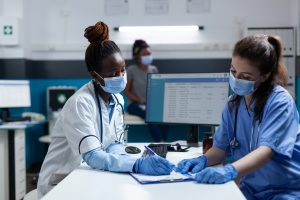
At this point there are no indications the COVID-19 vaccine recommendations should be altered for people with POTS or other autonomic disorders.
Dr. Glen A. Cook Jr., M.D. gives a patient education seminar on dysautonomia at Largo Medical Center.
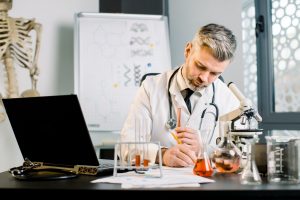
Mast Cell Activation Syndrome (MCAS) is the most common form of systemic Mast Cell Disease and is known to cause Dysautonomia in some but not all patients. This article was originally published in 2013.
Dr. Sandroni discusses many elements of managing POTS patients including: Orthostatic Intolerance, Tilt Table Testing, the important role of hydration and salt as well as a discussion about using IV fluids.
In this video Dr. Low, the physician who coined the term, “POTS”, describes the early days of the development of autonomic medicine and summarizes key findings about POTS in recent years.
In this video Dr. Raj discusses how to manage reflex and situational syncope. He also explains what to say to patients after they experience fainting.
In this video Dr. Coleby explains the importance of exercise in autonomic disorders. He also details key criteria for helping patients successfully implement a science-based exercise program.
In this video Dr. Guzman discusses Ehlers Danlos Syndrome (EDS), POTS and Mast Cell Activation Syndrome (MCAS), three coexisting conditions that are sometimes seen together in a segment of the POTS population.
In this video Dr. Peltier discusses POTS and other disorders commonly associated with POTS including small fiber neuropathies, Sjogren syndrome, B12 deficiency, mast cell disorders and others.
In this video, rehabilitation of young POTS patients is explained including key elements of successful rehabilitation.
In this video, Dr. Vernino discusses the relationship between autoimmunity and autonomic failure.
In this video Dr. Raj discusses names used to describe fainting and the basic physiology behind the faint. He also discusses the importance of recognizing the difference between reflex faints and other potentially life-threatening conditions.
Dr. Cook discusses his experience in seeing patients with various forms of dysautonomia in the clinic and autonomic laboratory. He emphasizes the importance of understanding the interdisciplinary nature of autonomic dysfunction.
In this video Dr. David Goldstein describes how you can access the free textbook on Autonomic Medicine which accompanies the course. He also shares tips for making the most out of using the online text.
In this video Dr. Goldstein presents the genetic and hereditary nature of most dysautonomias which occur in the early pediatric years. He also touches on types of autonomic disorder that may occur in adolescents.
In this video Dr. Goldstein presents two common signs seen in the clinic that may be a clue there is an autonomic problem.
Dysautonomia is not one diagnosis but is a constellation of diagnoses that fall somewhere on the spectrum we call, “The Dysautonomia Universe.” The dysautonomia universe categorizes dysautonomias according to age group.
In this video Dr. Goldstein explains why autonomic medicine is not well understood in medicine today and addresses important aspects of autonomic medicine which are unique from other subspecialties.
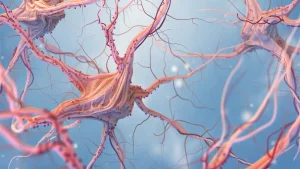
The nervous system of the body is by far the least understood of all body systems. It is made up of an overwhelmingly complex network of neurons electrically charged and dynamically changed by a vast number of chemical messengers produced in places all over the body.

Dear family member or friend, If the person you care about has been diagnosed with a form of dysautonomia (e.g., POTS, orthostatic hypotension, among others),

One of the most powerful chemical messengers of the autonomic nervous system (ANS) is adrenaline, also known in scientific communities as epinephrine. When called upon, this formidable chemical courses throughout the body via the bloodstream.
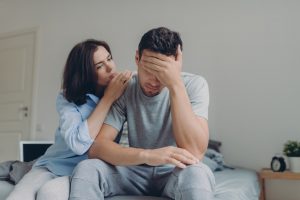
POTS is a mind-body disorder. Neurotransmitters such as norepinephrine, dopamine, adrenaline, serotonin and acetylcholine, which help the nervous system to work, are often released abnormally in patients with POTS and can affect the mental state of the POTS patient.
Some links and features may not work immediately. All links and features will be actively working in the next 24-72 hours. Thank you for your patience.
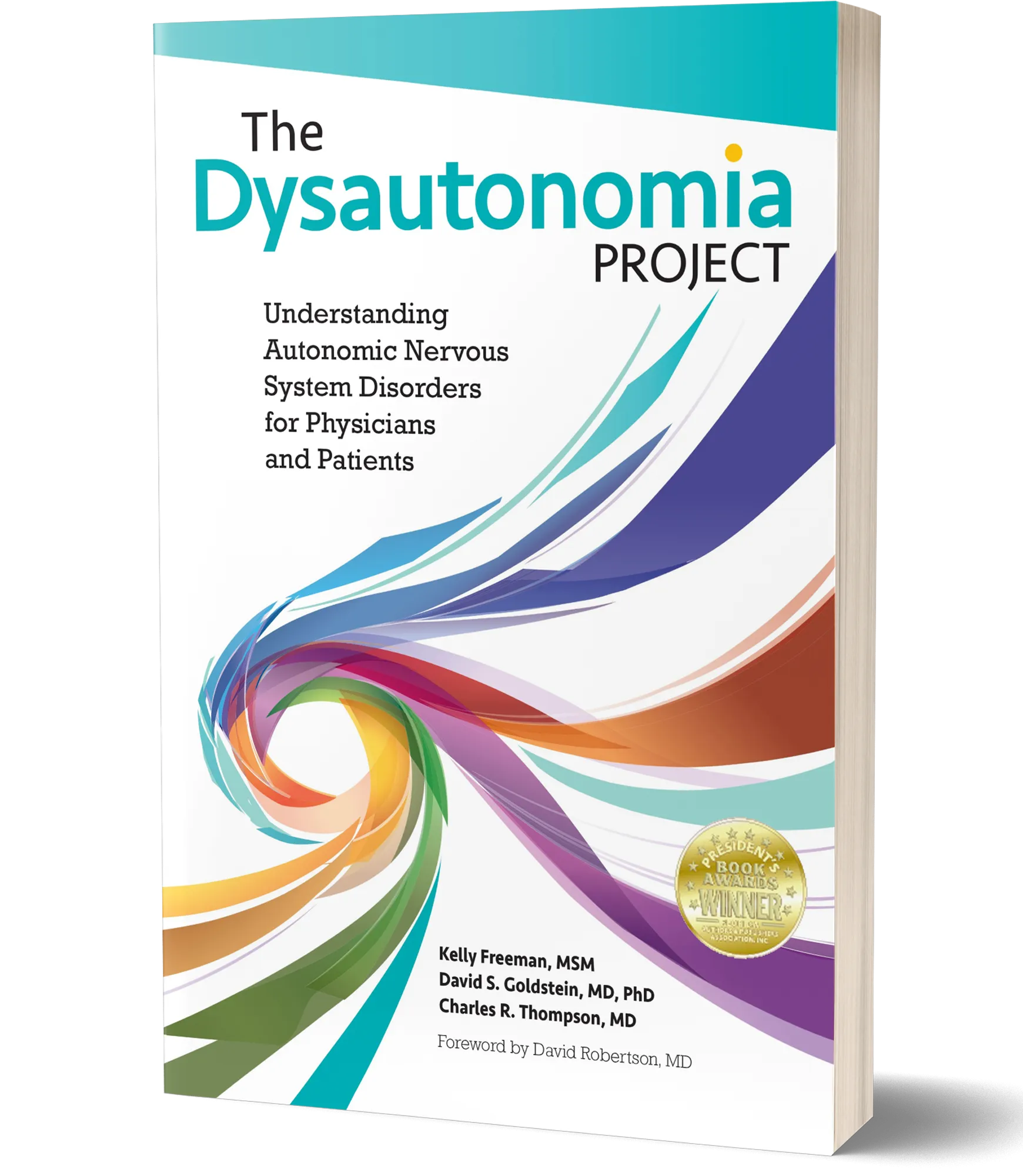
The Dysautonomia Project book has reached around the world as a much-needed tool for providers, patients or caregivers looking to arm themselves with the power of knowledge.
"I highly recommend this book to not only patients but physicians as well!"
"This book has helped my doctors feel empowered to treat me and recognize other patients who are similarly affected. It helped educate my own family too."
"If you are like me and have been pushing in hard for many years or maybe not so many years...for a diagnosis and just want more information on Dysautonomia conditions then this is the book for you!"
"Truly amazing book, an insight into Dysautonomia, informative and educational for both the patient, family and clinicians."
"Excellent book, on many levels, it helped with understanding links with gastroparesis and hypermobility amongst many other things."
"Very informative. The side of the page which is meant for medical professionals is still very readable for patients and provides all the useful info. Great if you've just been diagnosed or to take along to show your doctor."
"Great book with clear format for both patient and doctor. Lots of information, easy to understand."